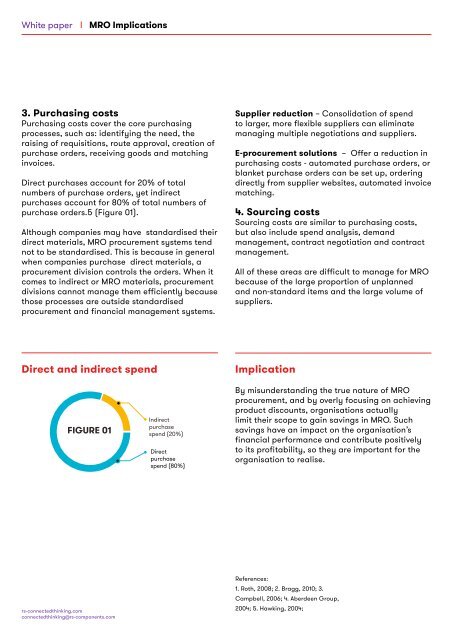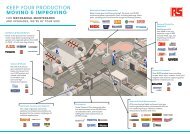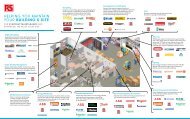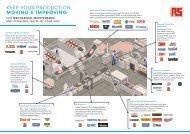MRO implications
Create successful ePaper yourself
Turn your PDF publications into a flip-book with our unique Google optimized e-Paper software.
White paper<br />
<strong>MRO</strong> Implications<br />
3. Purchasing costs<br />
Purchasing costs cover the core purchasing<br />
processes, such as: identifying the need, the<br />
raising of requisitions, route approval, creation of<br />
purchase orders, receiving goods and matching<br />
invoices.<br />
Direct purchases account for 20% of total<br />
numbers of purchase orders, yet indirect<br />
purchases account for 80% of total numbers of<br />
purchase orders.5 (Figure 01).<br />
Although companies may have standardised their<br />
direct materials, <strong>MRO</strong> procurement systems tend<br />
not to be standardised. This is because in general<br />
when companies purchase direct materials, a<br />
procurement division controls the orders. When it<br />
comes to indirect or <strong>MRO</strong> materials, procurement<br />
divisions cannot manage them efficiently because<br />
those processes are outside standardised<br />
procurement and financial management systems.<br />
Supplier reduction – Consolidation of spend<br />
to larger, more flexible suppliers can eliminate<br />
managing multiple negotiations and suppliers.<br />
E-procurement solutions – Offer a reduction in<br />
purchasing costs - automated purchase orders, or<br />
blanket purchase orders can be set up, ordering<br />
directly from supplier websites, automated invoice<br />
matching.<br />
4. Sourcing costs<br />
Sourcing costs are similar to purchasing costs,<br />
but also include spend analysis, demand<br />
management, contract negotiation and contract<br />
management.<br />
All of these areas are difficult to manage for <strong>MRO</strong><br />
because of the large proportion of unplanned<br />
and non-standard items and the large volume of<br />
suppliers.<br />
Direct and indirect spend<br />
Implication<br />
FIGURE 01<br />
Indirect<br />
purchase<br />
spend (20%)<br />
Direct<br />
purchase<br />
spend (80%)<br />
By misunderstanding the true nature of <strong>MRO</strong><br />
procurement, and by overly focusing on achieving<br />
product discounts, organisations actually<br />
limit their scope to gain savings in <strong>MRO</strong>. Such<br />
savings have an impact on the organisation’s<br />
financial performance and contribute positively<br />
to its profitability, so they are important for the<br />
organisation to realise.<br />
rs-connectedthinking.com<br />
connectedthinking@rs-components.com<br />
References:<br />
1. Roth, 2008; 2. Bragg, 2010; 3.<br />
Campbell, 2006; 4. Aberdeen Group,<br />
2004; 5. Hawking, 2004;
















